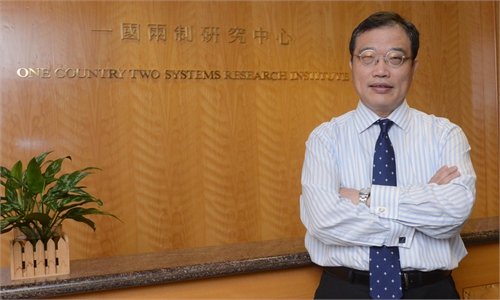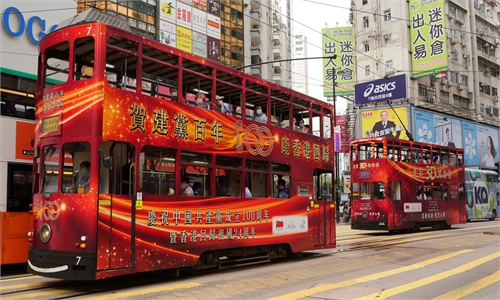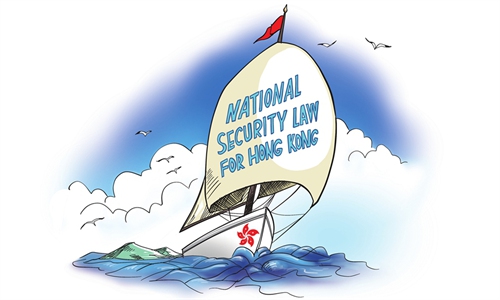Editor's Note:
A year after the national security law for Hong Kong took effect and as the city undertook electoral reform, social stability has been restored in the special administrative region and black-clad protests are a thing of the past. The city, as one of the world's major financial hubs, has also seen positive changes by breaking an unproductive political infighting cycle and fixing loopholes in local governance, which can no longer be abused for purposes of engaging in subversive activities. All these changes gave new hope to locals and Hong Kong-based businesses, however, local politicians said there remains a lot of work to do in safeguarding national security, enhancing public awareness, and deepening their understanding of the country and the leadership of the Communist Party of China (CPC). While Hong Kong is scheduled to hold three important elections in coming months, Global Times reporters Chen Qingqing and Bai Yunyi (GT) talked with some prominent politicians in Hong Kong including Regina Ip Lau Suk-yee (Ip), HKSAR Executive Council member and New People's Party chairwoman, on the changing political environment and the new challenges.
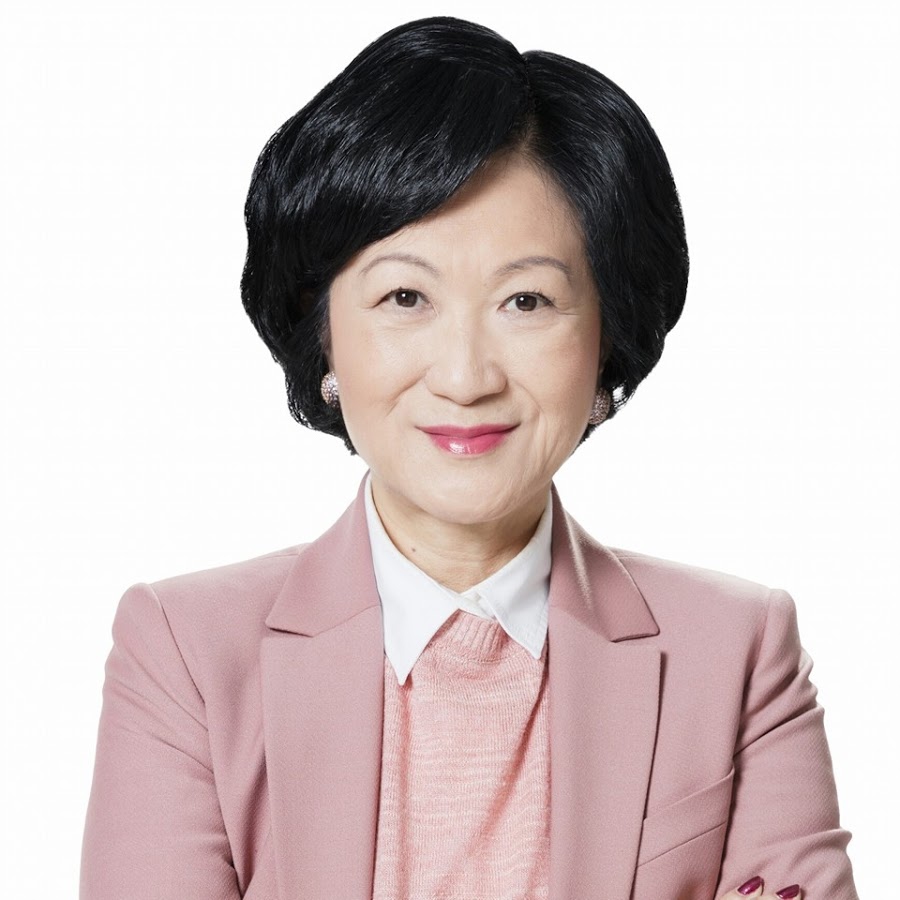
GT: How do you evaluate the effect of the national security law for Hong Kong? Do you think it has achieved the goal of the legislation?
Ip: The law yielded immediate results by ending the black-clad riots, helping the society in restoring the stability with a very apparent outcome. Under the national security law for Hong Kong, many figures from the opposition, who may know their alleged illegal acts, exited the political parties, and some left Hong Kong.
Of course, there are still some lawbreakers engaging in activities that endanger national security though the society has restored stability, for example, some students were found taking part in a secessionist organization called "returning valiant" by hiding a large amount of explosives. Also, the attack on July 1 was apparently not just a "lone-wolf" style attack. Whether he had been incited by any forces in the shadows, more investigations are needed.
Still, I don't think such incidents will become general trends, though authorities need to fend off those risks and step up efforts in intelligence collection.
GT: What reforms or work does Hong Kong need to do in the foreseeable future to ensure social stability and national security?
Ip: The national security law for Hong Kong can only curb illegal activities, while there are still many behaviors against the country, for example, there were residents mourning the death of the criminal who stabbed the police officer on July 1. Some students also glorified the violence. Besides the legislation, we have to do more in education. We have severe problems with our education system, reflected in the black-clad riots of 2019.
The liberal studies have become a curriculum against the country. When you saw young people trampling on our national flag in riots in 2019, there was a realization that they were under the influence of negative ideologies, which warrants an urgent reform in the educational and cultural sectors.
In terms of the next reform plans, I can see that the HKSAR government is determined to take steps by canceling the accreditation of irresponsible teachers. Also, on the curriculum reform, the training of teachers is needed as education about the country's situation and society has to be enhanced. Teachers need to accept training from the mainland in order to make sure they understand the development of the mainland and have a correct understanding of the country's overall development.
Also, in the media sector, there are some programs with ill-intentioned ideologies that have since been removed, for example at Radio Television Hong Kong, and there's one major question remaining: How does one disseminate positive information and content through cultural activities by increasing understanding of our traditional Chinese culture and making Hong Kong the center of integration between both Chinese and Western cultures.
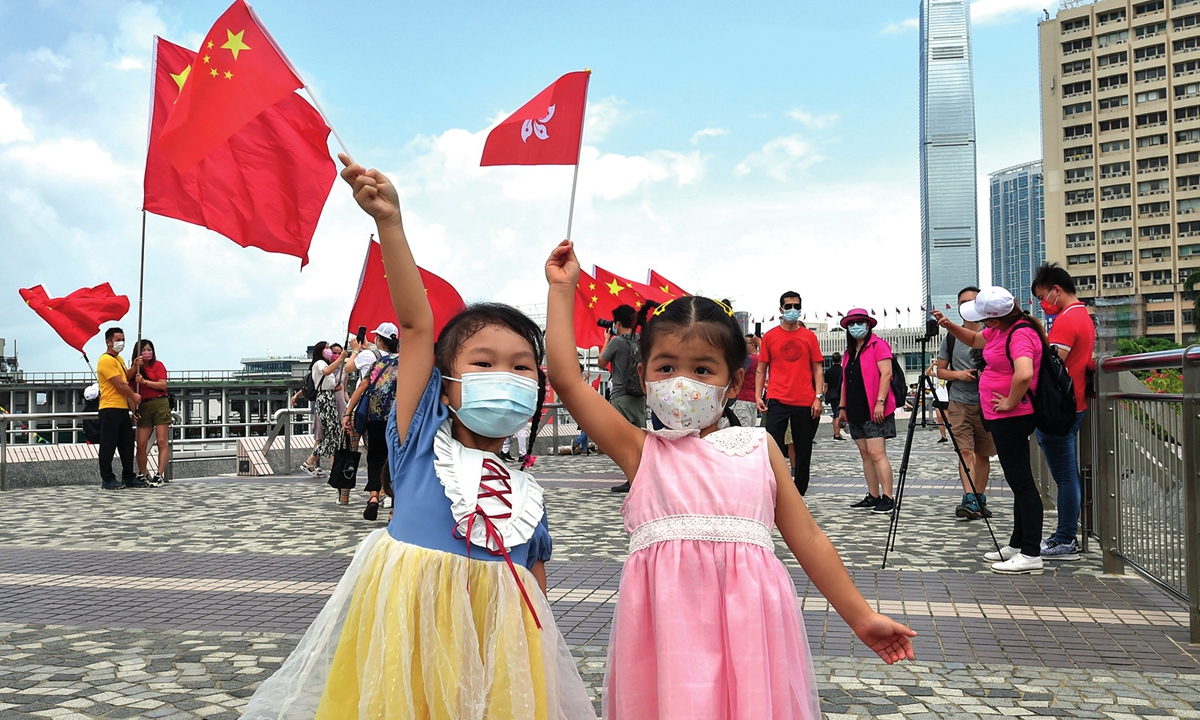
GT: There have been some activities in Hong Kong in previous weeks celebrating the 100th anniversary of founding of the Communist Party of China (CPC), and some activities are still ongoing. What does it mean? What role will the CPC play in the future of Hong Kong?
Ip: This year marks the 100th anniversary of the founding of the CPC, marked with many open activities in both Hong Kong and the mainland while the central government also invited us to the grand ceremony in Beijing. I think all those signaled the central government's change in policy.
In the past, the CPC tried to keep a low-profile by not influencing local governance in Hong Kong, to enable the HKSAR government to carry on with high autonomy. But what's the outcome? At the Legislative Council meetings, some anti-government lawmakers would deliberately smear the CPC by downplaying its efforts. Also, considering the historical background of the city, some Western politicians tapped on that fear against the CPC.
But what is the undeniable fact? It's that the CPC is a very successful ruling Party. If the CPC does not walk out of the shadows to talk about its achievements, then this will not serve the purpose of the "one country, two systems" policy as some residents will take it as negative for the country.
So I think now is also a watershed moment for the CPC to speak out boldly and conduct activities openly in Hong Kong by clarifying on its important policies and addressing the public.
GT: What does the latest government reshuffle mean to local governance and what kind of subsequent government do you expect following the three important elections?
Ip: The latest appointment of a new chief secretary, secretary of security, and commissioner of police force may reflect an important mission that the HKSAR government needs to accomplish - the implementation of the Article 23. Though the national security law for Hong Kong stipulates punishment for subversion, collusion with foreign forces, and local terrorist activities, the implementation of Article 23 is the constitutional responsibility of the HKSAR government.
Macao fully implemented Article 23 as part of the Basic Law in 2009, and we have not even started yet, apparently. Considering that the Secretary for Security Chris Tang and Chief Secretary John Lee have experience in dealing with security-related questions, they should have started to study on this matter and propose it to the LegCo.
While the new LegCo meetings will start in January 2022 after the elections, without ill-intentioned filibustering by anti-government lawmakers, the process may go ahead smoothly by conducting public consultation. Also, it should not be a very large-scale consultation without any specific target groups. I hope the HKSAR government will come up with specific suggestions for professionals which may take about two months before putting it to the LegCo deliberation. Hopefully, the implementation of the Article 23 could be accomplished by next year.
Whoever will become the next chief executive of the HKSAR government, they should be an official who can usher in a new normal for Hong Kong including the future integration into the country's overall development, coordinate with the central government in confronting the new international situation, and help telling the stories of China's model, stories about the "one country, two systems." The new official will also have the capability of dealing with the security problems and other social issues such as the wealth gap and housing issues.
Meanwhile, they would have both tough and flexible stances when handling different problems. For example, you can't arrest all the youngsters who mourned and brought flowers to the suicidal criminal who attacked the police officer. It takes time to change minds, which is challenging work.
The next chief executive should not only be a civil servant but also a politician whose remarks and speeches would be accepted locally and internationally.
GT: Concerning enhancing security consciousness among young people, do you think it's necessary to enhance social media regulation? Are there any detailed suggestions?
Ip: We need to form the legislature on social media regulation, and the HKSAR government is already working on it. During the social turmoil in 2019, many police officers' personal information was revealed on the internet including information about their families and children, which led to doxing against them. Some have filed lawsuit against said doxing acts, but the legal process takes a long time with expensive legal fees. The HKSAR government is working to rectify the privacy protection regulation in ensuring local residents can fight back against such behaviors through legal channels and ways to prevent disinformation.
A year after the national security law for Hong Kong took effect and as the city undertook electoral reform, social stability has been restored in the special administrative region and black-clad protests are a thing of the past. The city, as one of the world's major financial hubs, has also seen positive changes by breaking an unproductive political infighting cycle and fixing loopholes in local governance, which can no longer be abused for purposes of engaging in subversive activities. All these changes gave new hope to locals and Hong Kong-based businesses, however, local politicians said there remains a lot of work to do in safeguarding national security, enhancing public awareness, and deepening their understanding of the country and the leadership of the Communist Party of China (CPC). While Hong Kong is scheduled to hold three important elections in coming months, Global Times reporters Chen Qingqing and Bai Yunyi (GT) talked with some prominent politicians in Hong Kong including Regina Ip Lau Suk-yee (Ip), HKSAR Executive Council member and New People's Party chairwoman, on the changing political environment and the new challenges.

Regina Ip Lau Suk-yee
GT: How do you evaluate the effect of the national security law for Hong Kong? Do you think it has achieved the goal of the legislation?
Ip: The law yielded immediate results by ending the black-clad riots, helping the society in restoring the stability with a very apparent outcome. Under the national security law for Hong Kong, many figures from the opposition, who may know their alleged illegal acts, exited the political parties, and some left Hong Kong.
Of course, there are still some lawbreakers engaging in activities that endanger national security though the society has restored stability, for example, some students were found taking part in a secessionist organization called "returning valiant" by hiding a large amount of explosives. Also, the attack on July 1 was apparently not just a "lone-wolf" style attack. Whether he had been incited by any forces in the shadows, more investigations are needed.
Still, I don't think such incidents will become general trends, though authorities need to fend off those risks and step up efforts in intelligence collection.
GT: What reforms or work does Hong Kong need to do in the foreseeable future to ensure social stability and national security?
Ip: The national security law for Hong Kong can only curb illegal activities, while there are still many behaviors against the country, for example, there were residents mourning the death of the criminal who stabbed the police officer on July 1. Some students also glorified the violence. Besides the legislation, we have to do more in education. We have severe problems with our education system, reflected in the black-clad riots of 2019.
The liberal studies have become a curriculum against the country. When you saw young people trampling on our national flag in riots in 2019, there was a realization that they were under the influence of negative ideologies, which warrants an urgent reform in the educational and cultural sectors.
In terms of the next reform plans, I can see that the HKSAR government is determined to take steps by canceling the accreditation of irresponsible teachers. Also, on the curriculum reform, the training of teachers is needed as education about the country's situation and society has to be enhanced. Teachers need to accept training from the mainland in order to make sure they understand the development of the mainland and have a correct understanding of the country's overall development.
Also, in the media sector, there are some programs with ill-intentioned ideologies that have since been removed, for example at Radio Television Hong Kong, and there's one major question remaining: How does one disseminate positive information and content through cultural activities by increasing understanding of our traditional Chinese culture and making Hong Kong the center of integration between both Chinese and Western cultures.

The Hong Kong Police College organizes a passing-out parade during the graduation ceremony on July 10 with Chinese-style military formations.Photo: Xinhua
GT: There have been some activities in Hong Kong in previous weeks celebrating the 100th anniversary of founding of the Communist Party of China (CPC), and some activities are still ongoing. What does it mean? What role will the CPC play in the future of Hong Kong?
Ip: This year marks the 100th anniversary of the founding of the CPC, marked with many open activities in both Hong Kong and the mainland while the central government also invited us to the grand ceremony in Beijing. I think all those signaled the central government's change in policy.
In the past, the CPC tried to keep a low-profile by not influencing local governance in Hong Kong, to enable the HKSAR government to carry on with high autonomy. But what's the outcome? At the Legislative Council meetings, some anti-government lawmakers would deliberately smear the CPC by downplaying its efforts. Also, considering the historical background of the city, some Western politicians tapped on that fear against the CPC.
But what is the undeniable fact? It's that the CPC is a very successful ruling Party. If the CPC does not walk out of the shadows to talk about its achievements, then this will not serve the purpose of the "one country, two systems" policy as some residents will take it as negative for the country.
So I think now is also a watershed moment for the CPC to speak out boldly and conduct activities openly in Hong Kong by clarifying on its important policies and addressing the public.
GT: What does the latest government reshuffle mean to local governance and what kind of subsequent government do you expect following the three important elections?
Ip: The latest appointment of a new chief secretary, secretary of security, and commissioner of police force may reflect an important mission that the HKSAR government needs to accomplish - the implementation of the Article 23. Though the national security law for Hong Kong stipulates punishment for subversion, collusion with foreign forces, and local terrorist activities, the implementation of Article 23 is the constitutional responsibility of the HKSAR government.
Macao fully implemented Article 23 as part of the Basic Law in 2009, and we have not even started yet, apparently. Considering that the Secretary for Security Chris Tang and Chief Secretary John Lee have experience in dealing with security-related questions, they should have started to study on this matter and propose it to the LegCo.
While the new LegCo meetings will start in January 2022 after the elections, without ill-intentioned filibustering by anti-government lawmakers, the process may go ahead smoothly by conducting public consultation. Also, it should not be a very large-scale consultation without any specific target groups. I hope the HKSAR government will come up with specific suggestions for professionals which may take about two months before putting it to the LegCo deliberation. Hopefully, the implementation of the Article 23 could be accomplished by next year.
Whoever will become the next chief executive of the HKSAR government, they should be an official who can usher in a new normal for Hong Kong including the future integration into the country's overall development, coordinate with the central government in confronting the new international situation, and help telling the stories of China's model, stories about the "one country, two systems." The new official will also have the capability of dealing with the security problems and other social issues such as the wealth gap and housing issues.
Meanwhile, they would have both tough and flexible stances when handling different problems. For example, you can't arrest all the youngsters who mourned and brought flowers to the suicidal criminal who attacked the police officer. It takes time to change minds, which is challenging work.
The next chief executive should not only be a civil servant but also a politician whose remarks and speeches would be accepted locally and internationally.
GT: Concerning enhancing security consciousness among young people, do you think it's necessary to enhance social media regulation? Are there any detailed suggestions?
Ip: We need to form the legislature on social media regulation, and the HKSAR government is already working on it. During the social turmoil in 2019, many police officers' personal information was revealed on the internet including information about their families and children, which led to doxing against them. Some have filed lawsuit against said doxing acts, but the legal process takes a long time with expensive legal fees. The HKSAR government is working to rectify the privacy protection regulation in ensuring local residents can fight back against such behaviors through legal channels and ways to prevent disinformation.

